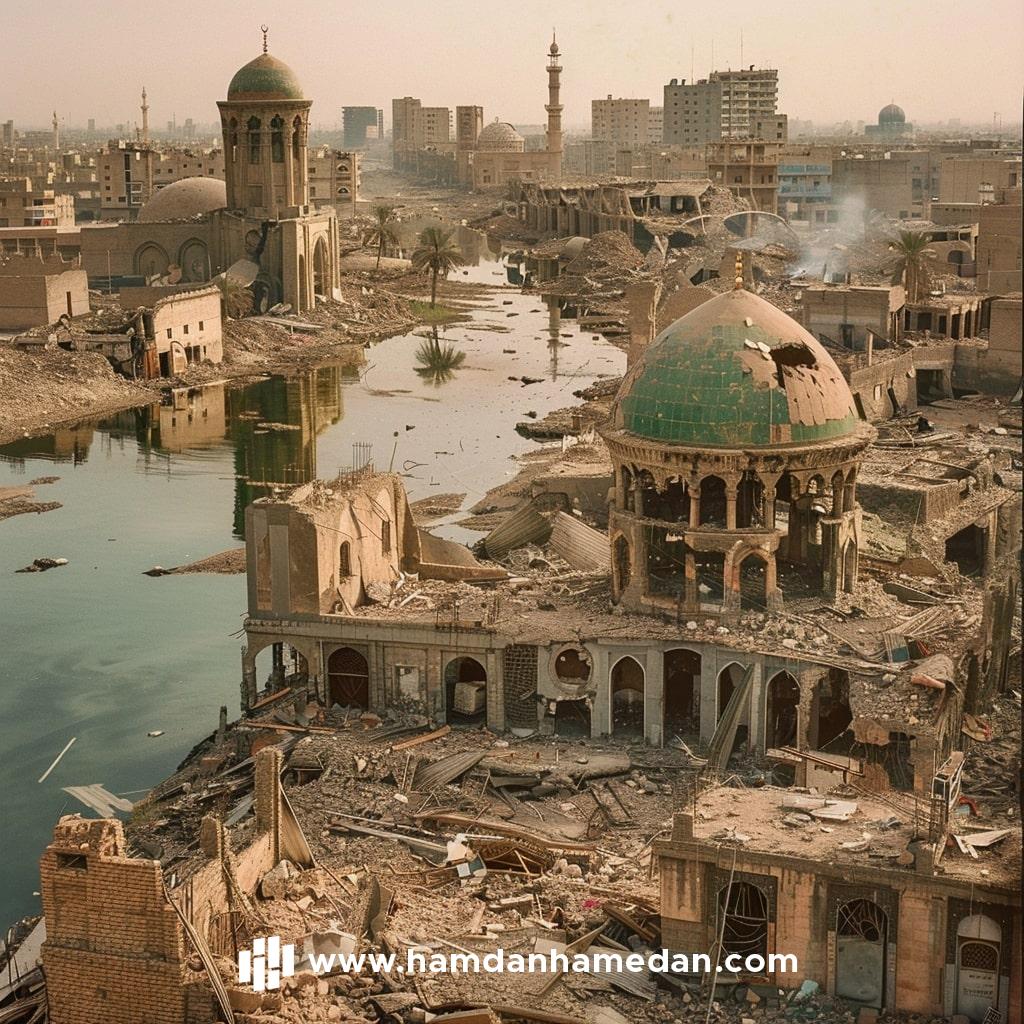
The successful blitzkrieg campaign through Northern and Central Iraq by the Islamic State in Iraq and the Levant (ISIS), an offshoot of Al-Qaeda, prognosticates perilous days ahead for a country constantly fractured by sectarian violence.
The capture of oil-rich Mosul and Tikrit, the birthplace of Saddam Hussein, raises an unprecedented security challenge to Nouri Al-Maliki’s Shia-led government.
What is transpiring as a melting away of Iraqi troops in the aforementioned cities before the menacing militias has raised serious questions about the capability of the Iraqi troops to defend their remaining territories and, more importantly, their commitment to safeguarding the future of the Republic of Iraq.
Boasting as many as 10,000 fighters, ISIS may well be the most dangerous and formidable militant group operating against the Iraqi government today.
As its name suggests, the Islamic State in Iraq and the Levant (ISIS) is not in the business of participating in the democratic process of the Republic of Iraq, but instead is bent on replacing that republic with a theocratic one (and later an Islamist emirate that straddles Iraq and Syria).
But it is not a theocratic pluralistic Islamic state that ISIS seeks to establish; it vows to establish a Sunni Salafi-jihadist, anti-Shia state in Iraq—a country where close to 70% of its population is Shia Muslims.
Thus, it is no coincidence that everything that follows is a pretty straightforward synnecrosis relationship between the two warring sides.
As the weaker side, ISIS would employ asymmetric, protracted warfare to unnerve and slowly undermine the Iraqi government at every turn, while patiently waiting to inflict the final blow to end the Republic.
On the other hand, the Iraqi government swears to obliterate the sinister group and its aspirations once and for all.
It seems apparent that until the end of 2013, the American-trained Iraqi troops were outwardly winning the war against multifarious inimical groups in the country—a commendable feat considering the U.S. troops had withdrawn two years prior.
But early this year, with the capture of the volatile city of Fallujah, the tide of war has steadily shifted to ISIS.
Recent ISIS exploits, particularly the seizing of Iraq’s second-largest city, Mosul, before barreling south to take the city of Tikrit, demonstrate that ISIS is on the offensive; and the group is now seemingly more dangerous and potent than ever.
Some even venture to label ISIS as the most dangerous militant group in the world.
Notwithstanding the label, ISIS is unequivocally more pernicious for the simple reason that its core members are learning from previous fatal mistakes.
Specifically, they are avoiding alienating Sunni tribal groups, a strategy that under the draconian leadership of Zarqawi, when they were aligned with Al-Qaeda, nearly caused their downfall.
They realize more than ever that alienating any Sunni groups or attacking them for slight differences or peccadillos is counterproductive at best, and suicidal at worst.
Instead, they now exploit the seemingly irreparable Sunni-Shia schism (and by extension, between the Shia-led government and the minority Sunni community) to recruit bellicose Sunni members, all the while projecting their images as guardians of the Sunni community.
Having a capable, seasoned, and purportedly homegrown Sunni leader known only by his nom de guerre, Abu Bakar Al-Baghdadi, serves to broaden the group’s appeal and legitimacy over disgruntled Sunnis over Prime Minister Al-Maliki’s supposed bias in favor of the Shia majority.
Furthermore, the presence of the group in Syria, which currently serves as the hotbed of Sunni-Jihadis, enables it to recruit an influx of foreign fighters seeking martyrdom and to resupply weapons.
After ISIS seized Mosul a few days ago, its members looted $425 million from the city’s central bank.
Now that the group has the manpower, weapons, and wherewithal to sustain heavy showdowns against the Iraqi troops, the question is now whether the latter would be ready to meet that arduous challenge.
Iraqi troops alone won’t be able to challenge ISIS’s unabated advance toward Baghdad, let alone recapture lost territories.
Waiting until Sunni tribal groups in seized cities such as Mosul, Tikrit, and others revolt and repel ISIS, just like they did with its predecessor Al-Qaeda in Iraq, due to maladministration, albeit possible, would only serve to enervate the credibility and legitimacy of the current administration.
To stay in power, or to appear to still be in power, Prime Minister Al-Maliki must inevitably act.
The good news for him is that he is not alone in this.
The U.S. and Iran have signaled their intention to assist.
Irrespective of the external assistance, it is clear that the Iraqi troops are ultimately the ones who must fight the ground battles, since the others probably won’t.
Hence, Prime Minister Al-Maliki and his commanders must succeed, first and foremost, in galvanizing the morale of their troops to combat ISIS, lest they simply melt away and flee like what happened in Mosul.
For the Maliki government, this imminent war is a must-win for the preservation of the Republic.
For the ISIS members, there is no such thing as abandoning their so-called jihad; it is either die in battle or live for another battle.
So what is it going to be this time, a democratic, despotic, or theocratic state?
No one knows for sure.
Yet one thing is sure as hell: For the Iraqi people, another disastrous civil war is looming ever so close on the ominous horizon.
* This article was previously published in June 2014




